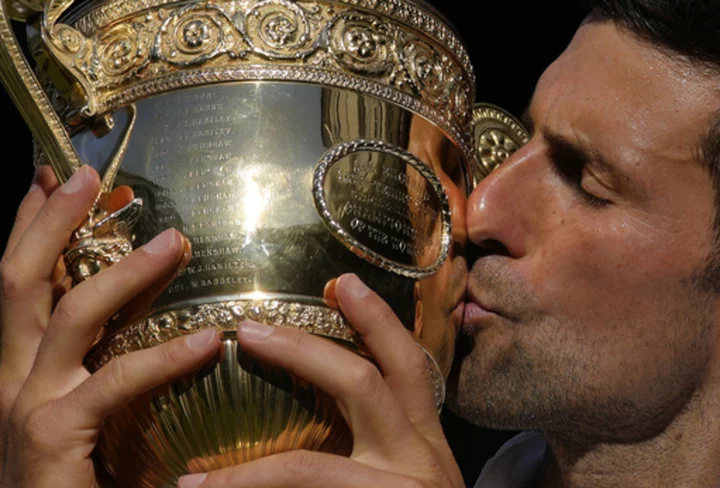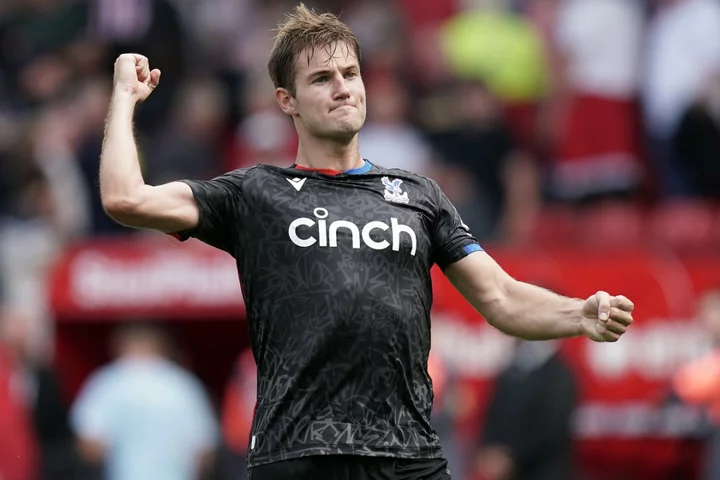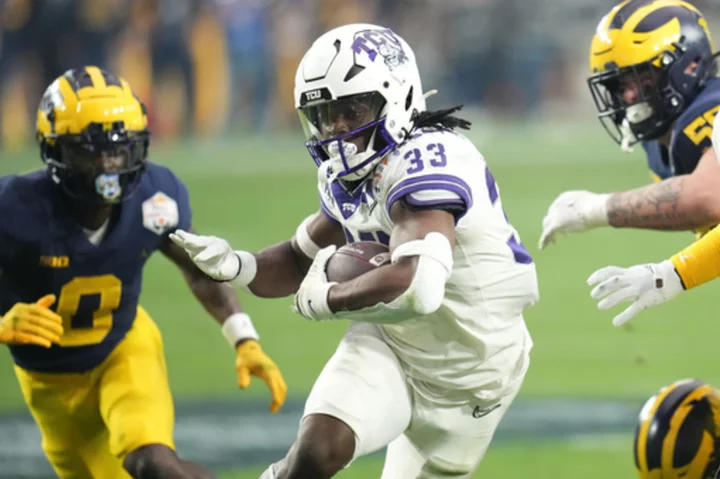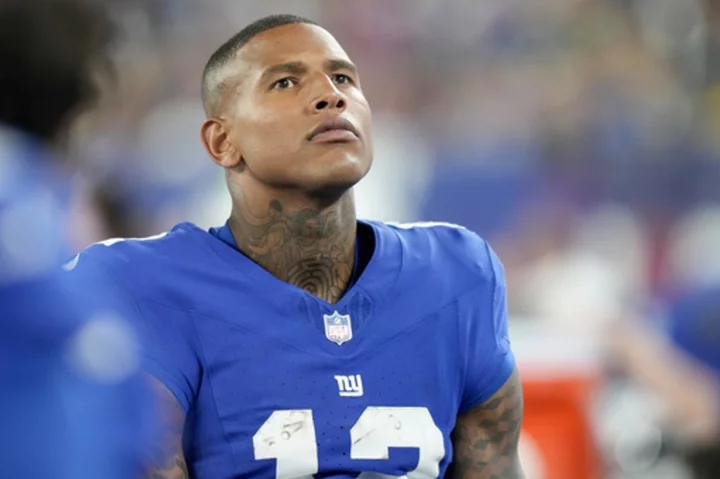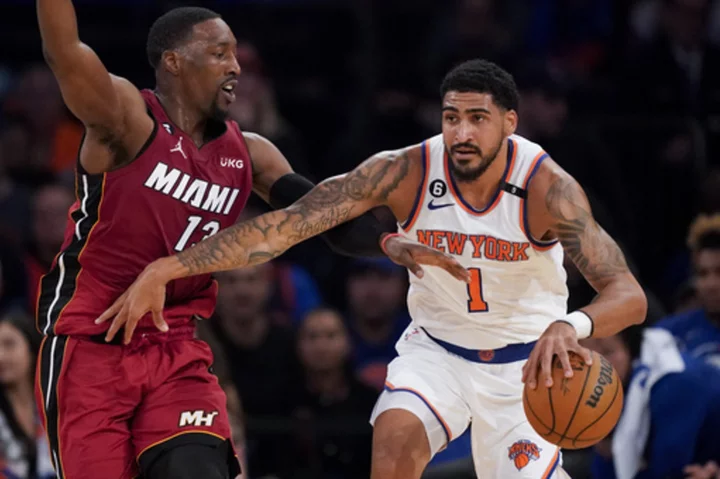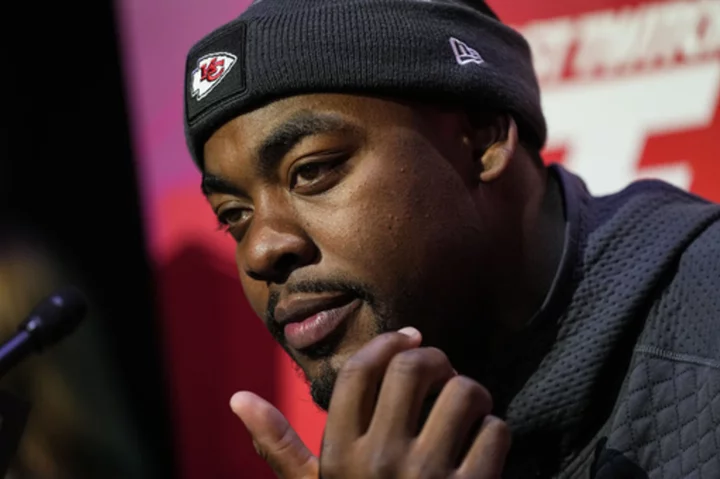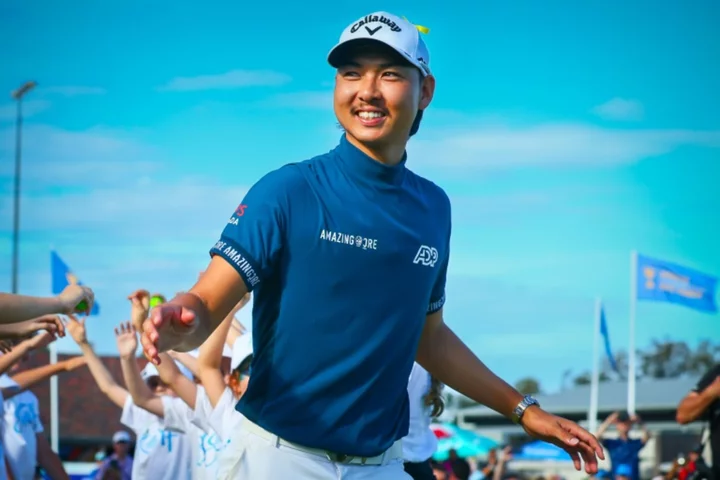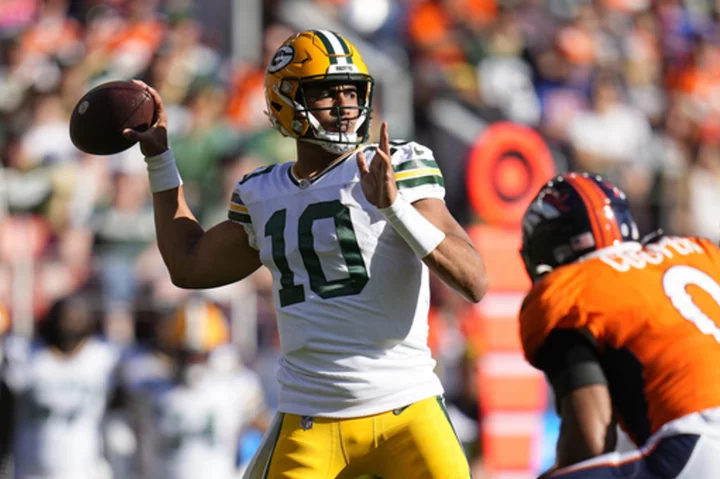WIMBLEDON, England (AP) — Listen to Novak Djokovic’s opponents explain why he is as successful as he is — why he will begin his pursuit of a fifth consecutive and eighth overall Wimbledon championship on Monday; why he also will be attempting to claim an Open era-record 24th Grand Slam trophy over the coming fortnight on the All England Club’s grass courts — and they’ll offer plenty of answers.
His best-in-the-game return of serve. His dangerous two-handed backhand. His elasticity. His stamina. His defense. His ability to read someone else’s intentions, get to where a ball is headed and send it back with force, a combination Casper Ruud described this way after losing to Djokovic in the French Open final: “He sort of just goes into this mode where he just becomes, like, a wall.”
Listen to Novak Djokovic explain why he’s done what he’s done and why, at age 36, he’s still doing it, and he’ll offer a reason far less tangible and far less observable, something he mentioned during his victory speech at Roland Garros a few weeks ago.
“I try to visualize every single thing in my life and not only believe it, but really feel it with every cell in my body. And I just want to send a message out there to every young person: Be in the present moment; forget about what happened in the past; the future is something that is just going to happen,” Djokovic said. “But if you want a better future, you create it. Take the means in your hands. Believe it. Create it.”
Speaking that day about his own hopes and dreams as a 7-year-old kid, Djokovic noted two primary goals: getting to No. 1 and winning Wimbledon.
He’s already been No. 1 for more weeks than any man or woman in the half-century of computerized rankings. Now he will try to pull even with Roger Federer by earning title No. 8 at the oldest of the four Grand Slam tennis tournaments. Djokovic is one ahead of the injured Rafael Nadal — and three ahead of the retired Federer — for the most singles majors won by a man, with 23.
“Those two guys,” Djokovic said, “were occupying my mind for the last 15 years quite a lot.”
His 23 is the same number Serena Williams ended her career with last season; only Margaret Court, who won 24 across both the amateur and professional eras, has more.
“Grand Slams are the goal. I don’t know how many, but I think he has in his body a lot more,” said Djokovic’s coach, Goran Ivanisevic. “It’s fascinating to see, because sometimes you think, ‘OK, now you have 23.’ But he’s going to find, again, some kind of motivation to win 24, maybe 25. Who knows where is the end?"
Entering the 2011 season, the so-called Big Three’s Slam standings looked like this: Federer with 16, Nadal with nine, Djokovic with one.
After winning his initial major title at the 2008 Australian Open, Djokovic went through an 11-major span where four of the losses came against Federer or Nadal in a semifinal or final.
His self-confidence waned a bit.
“That’s where I was really doubting myself, whether I could do it or not, because you get far but then you fall on the last hurdle,” Djokovic said. “The more times you kind of fall, the more you question everything, you know what I mean?”
And yet, with the same tenacity he uses on a court — “The mental fortitude he has is unbelievable,” was how his first-round opponent in Paris, Aleksandar Kovacevic, put it — Djokovic dug in away from the court and found ways to improve. And still does that, which is part of why most consider him, and not No. 1 seed Carlos Alcaraz, the favorite as Djokovic continues to pursue the first calendar-year Grand Slam by a man since Rod Laver in 1969.
So where did this belief come from?
Djokovic points to several factors: his upbringing during a time of war and embargo in Serbia in the 1990s; his parents (“95-plus percent of people ... were laughing at them, and were discouraging them to spend whatever is left over from the family budget into such an expensive sport,” he said); his first coach and “tennis mother,” Jelena Genčić; and a later coach and “tennis father,” Niki Pilić.
All helped him grow as an athlete and person.
When he was 7 or 8, Djokovic said, Genčić would show him video of the best male and female tennis players. She also taught him “the importance of relaxing and listening to classical music, reading poetry, singing, and reading, breathing consciously and so forth.”
His mother, he said, “is a rock,” and his father “instilled in me such power of belief and positive thinking.”
That, as much as any particular shot or talent, is why, Djokovic says, “On a daily basis, I’m the best on the court.”
It’s why he has won 11 of the past 21 Grand Slam tournaments.
And it’s why he avoids wading into any debate about who the best player ever is.
“I don’t want to enter in these discussions,” Djokovic said. “I’m writing my own history.”
___
Howard Fendrich has been the AP’s tennis writer since 2002. Follow him on Twitter at https://twitter.com/HowardFendrich
___
AP tennis: https://apnews.com/hub/tennis and https://twitter.com/AP_Sports

